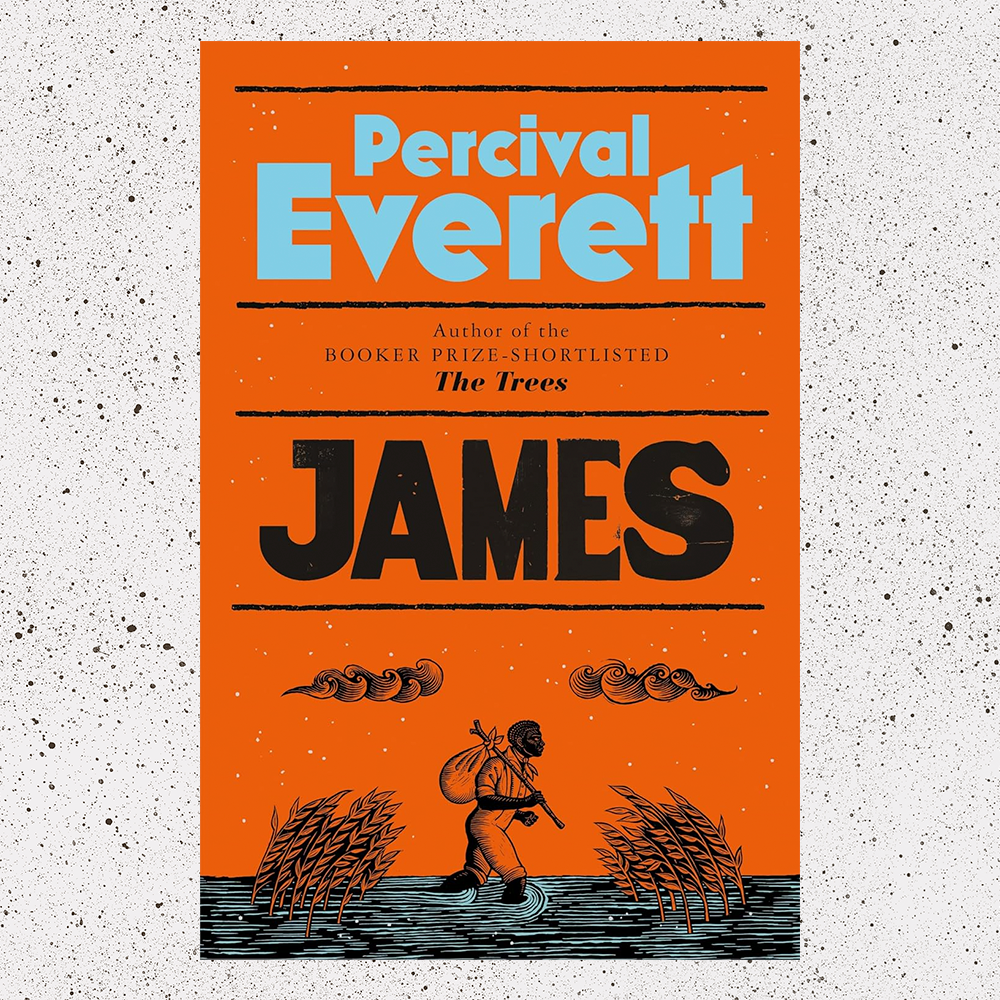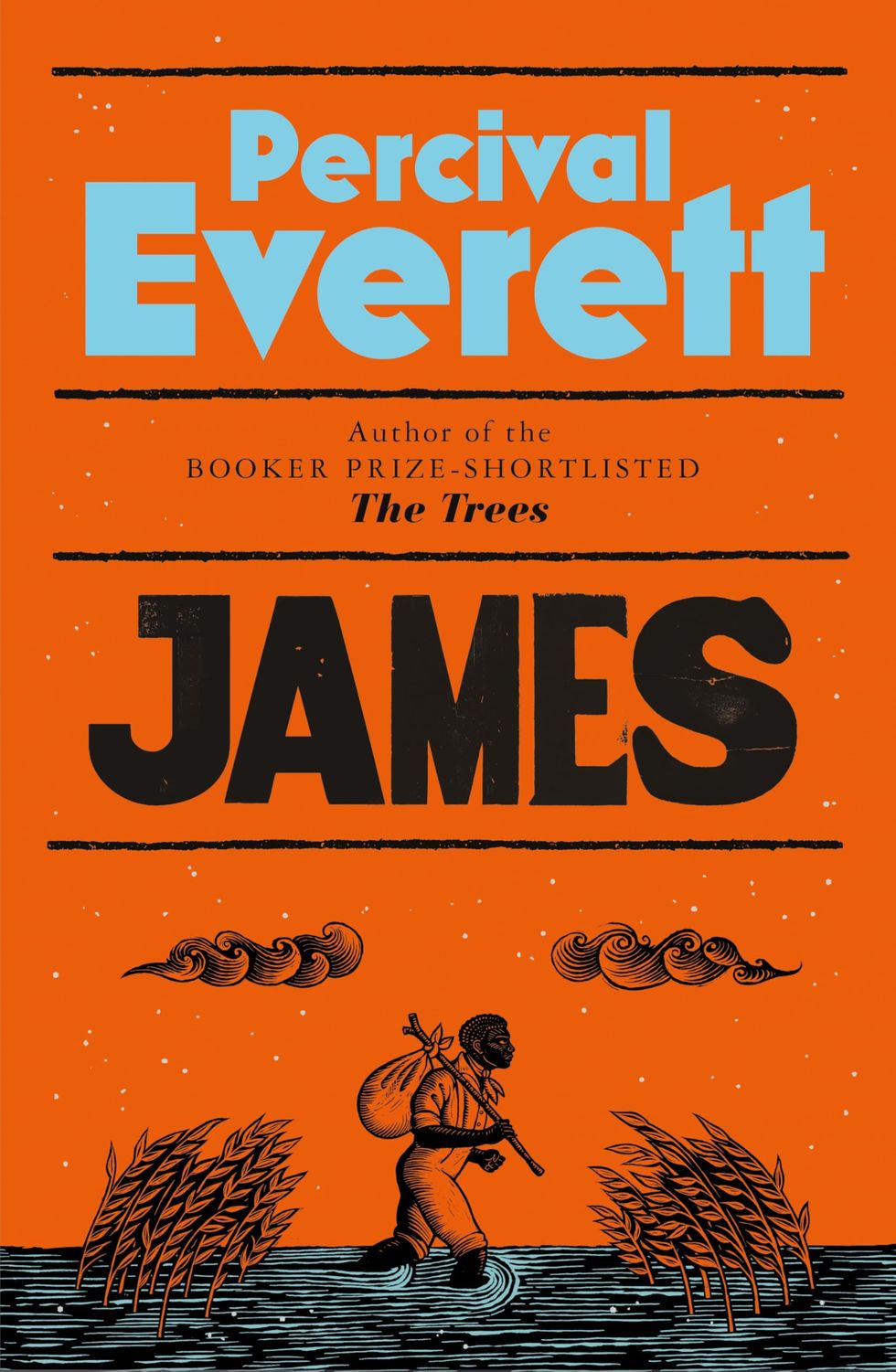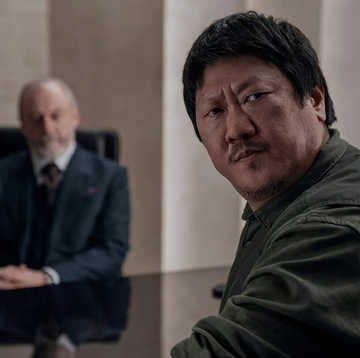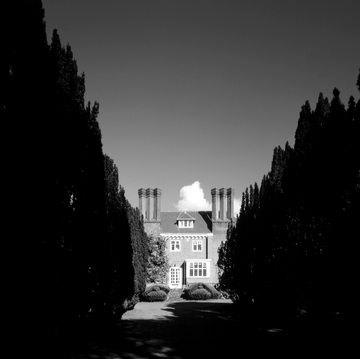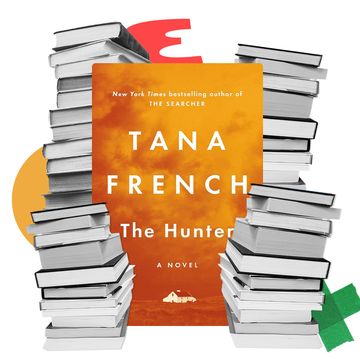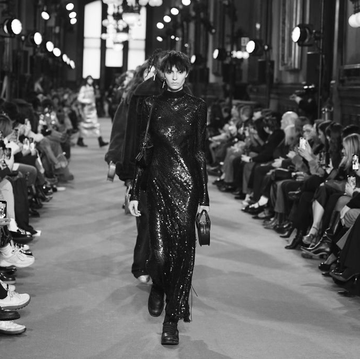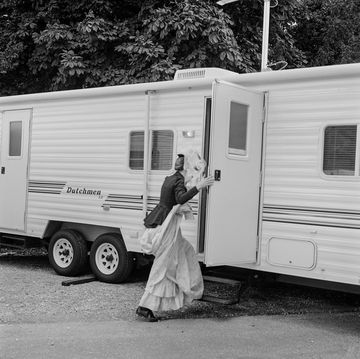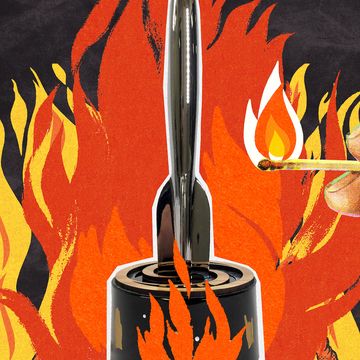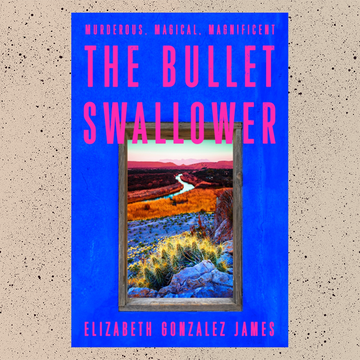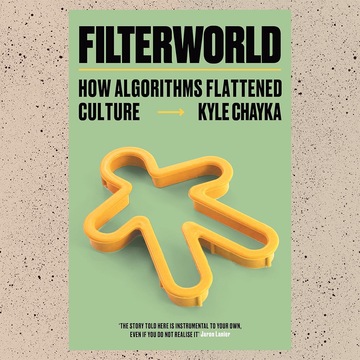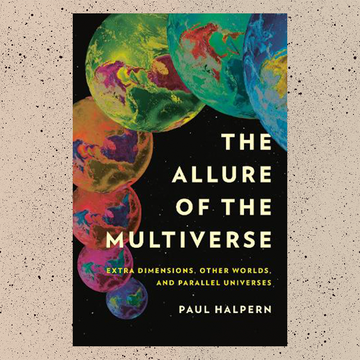James centres on a seminal character from American literature—and yet, seen afresh through the gaze of acclaimed writer Percival Everett, it’s as if we’re meeting him for the first time.
Everett’s subject is Jim, the enslaved runaway from Mark Twain’s The Adventures of Huckleberry Finn. Blasted clean of Twain’s characterisation, Jim emerges here as a man of great dignity, altruism, and intelligence. The new novel opens in Hannibal, Missouri, where Jim teaches enslaved children to run their speech through a “slave filter” of “correct incorrect grammar,” designed to pacify white people. Then the story settles into Twain’s familiar grooves—on the run together, Jim and Huck raft down the Mississippi River, facing danger, separation, and charlatans aplenty. Along the way, Everett fills in the blank spaces of plot and characterisation left by Twain, as Jim imagines verbal sparring matches with dead philosophers, falls in love with reading, and begins to author his own story. “With my pencil, I wrote myself into being,” he writes. And so he does: on the road to freeing himself and his family from slavery, Jim becomes more self-determined than ever. Clever, soulful, and full of righteous rage, his long-silenced voice resounds through this remarkable novel.
Subversive and thrilling, James is destined to become a modern classic. But for Everett, the self-effacing author of dozens of daring novels (including Erasure, which was recently adapted into the Academy Award-winning film American Fiction), the work is simply the work. “I flatter myself to imagine that I’m in conversation with Twain and writing the novel that he couldn’t write,” he tells Esquire. Still, he does harbour a fantasy of sitting side-by-side with Twain, watching the storied Mississippi River go by.
Everett Zoomed with Esquire from his office at the University of Southern California, where he teaches as a Distinguished Professor of English. This conversation has been edited for length and clarity.
ESQUIRE: Do you remember your first encounter with The Adventures of Huckleberry Finn?
PERCIVAL EVERETT: Only vaguely. As a kid, I read an abridged version. I don’t know how it was abridged; it was just shorter. I’m not even sure if that unfortunate word was included in the text. And I have to say, I wasn't terribly taken with it. I never liked The Adventures of Tom Sawyer. After Tom Sawyer came Huck Finn, which I liked a little better. Then as a teenager, I read it again. I’m not certain if I read it in school or not. But being a Black kid in America reading that text, that word was problematic. It was clearly a text in which an adolescent in America was trying to come to terms with the defining feature of America’s character: race. And so I was taken with the novel, even though it’s an uneven novel. It becomes an adventure that it doesn’t need to become, but it still deals with those issues. It became an important text to me, but more importantly, it’s such a persistent and iconic feature in our literary landscape.
Why do you think it looms so large in the American imagination, all these years later?
I think because of the use of the vernacular. And also, it’s problematic. It’s not an easy read. Huck is an adolescent American, but it’s ultimately representative of America trying to come of age. It’s really the first time you have a work that’s not about slavery, but about an enslaved person. That’s a significant difference and a departure from the earlier texts.
Have you taught the book in your classroom?
No, I've never taught it.
Maybe now you'll have to.
If I can remember it. I read Huck Finn fifteen times in a row to write James. Now it’s a blur and I can hardly remember it.
You say you didn't like The Adventures of Tom Sawyer. Why not?
It’s just an adventure novel, and I wasn’t terribly excited about that. But I was influenced by Twain greatly—by Life in the Mississippi and Roughing It, which were both wonderfully funny. The Diaries of Adam and Eve were hilarious, too.
I've seen James described as a “retelling” and a “reimagining.” Do those terms accurately describe your vision?
I don’t know. I certainly understand them. I’m relying on an extant text as a source for this world—part of my meaning is made by the fact that Huck Finn exists. I don’t know if the novel would be possible without Huck Finn. I have to say, this doesn’t come from a place of dissatisfaction with or disdain for the Adventures of Huckleberry Finn. I flatter myself to imagine that I’m in conversation with Twain and writing the novel that he couldn’t write.
One of the things I admire about James is how you give a full, rich life and sense of personhood to a character who was underserved, but you don't destroy the original tale. What was the right balance of speaking to Huck Finn while also departing from it?
I’ve read Huck Finn so many times that I’ve internalised and forgotten it. But there were things I knew James wouldn't contain. For example, I was trying to excise Tom Sawyer as much as possible, and also trying to make up for the certain narrative dissonance of Twain having stopped and started the text along the way. You can see those demarcations, where he stopped and then came back to it. That's where the novel encounters some problems—it doesn’t detract from the importance of it, but the novel itself suffers.
One of my favourite qualities about your Jim is his growing love of reading. You write, “It was a completely private affair, and completely free, and therefore completely subversive. Do you think reading is still a subversive act?
Certainly. This is why they always burn and ban books. It’s why education is so frightening to, dare I say, the right wing—why intellectuals are considered an elite group instead of a group to be exploited and used.
You've often said that philosophical problems animate your novels. But in the case of this novel, philosophers themselves animate the story, as Jim has imagined arguments with Rousseau, Voltaire, and John Locke. Which of those philosophers would you most like to speak with?
Maybe Voltaire. It'd be less earnest than John Locke and there might be more fun. He wasn’t the same kind of philosopher as Locke—he was probably more open to play and ideas.
Was it fun to play with these real people in a fictional sandbox? It’s certainly fun to read.
I suppose it was. It's hard for me to think about fun when I'm going to work. But I guess those were probably the parts I personally enjoyed writing the most. The hard work was distilling it, because those guys like to go on and on. They could have taken over the book.
I often feel like your work has a very playful and elastic approach to language, and James is no different. As the story progresses, language comes to mean many things to Jim—sometimes it’s a disguise, or liberation, or resistance against dehumanisation. Jim writes, “My interest is in how these marks that I am scratching on this page can mean anything at all. If they can have meaning, then life can have meaning, then I can have meaning.” How were you thinking about language as you wrote James?
Language is all we have, really. It’s how we think and how we move through the world—not only with other people, but with ourselves. It’s how we explain the world for ourselves. The question of “is any kind of private language even possible?” is always present in my thinking. But more than that is the idea of language is so amazing—that I can put marks on a page, and you can look at them and have some idea of what I’m trying to say. It’s just remarkable. It’s crazy that we can utter these sounds and they come together and make some kind of sense.
As you were reconsidering who Jim is, you were of course reconsidering his relationships, too. I really enjoyed his complicated affection for Huck. What felt like the right pitch for their dynamic?
I think that perhaps oppressed people might be a little more adept at empathy than oppressors. Even in Huck Finn, Jim is really the only father figure that Huck has. And regardless of their station, he’s the only decent man present in Huck’s life, so that was already present in the text. I've made their relationship a little more entwined than Twain did.
In a previous interview, you talked about the role of setting; you said, “You always add an element to a story once you locate it someplace.” How did you conjure Hannibal, Missouri?
Well, I visited Hannibal, Missouri and it yielded absolutely nothing, so I read a few books by locals Hannibilians, or however you would refer to them. Really, it was my knowledge of the South and my knowledge of Twain’s text that informed the characters. Reading those books offered a way of being in the land. I didn’t use any particular histories of the place; that all comes from Twain’s text. If anything, this approach freed me to make it up. I think you really do conjure the time and the place.
I wouldn't call this an adventure novel, but the action scenes—while harrowing and life-threatening—are deeply thrilling. You’re quite the outdoorsman. What did your experience of that lifestyle lend to writing James?
Well, I known what it’s like to sleep outside or sleep in a cave, so I guess that’s part of it. I don’t know if being outdoors a lot makes me an outdoorsman. I don’t know how well I would do on Survivor, but I know how to pitch a tent. I liked the fact that the novel was set on the river and out in nature—I’m comfortable there.
Do you fish?
I do fly fish.
There's that thrilling moment where Jim puts his arm down the mouth of a 50-pound catfish. What was your most memorable catch?
It was fishing for a cutthroat trout that I could actually see—and I was sure could see me—on a rather placid part of the Red River in New Mexico. So I really had to be sneaky. Even if I hadn't caught him, just the fact that I could fish for him probably would have been enough.
I read that you were watching episodes of Mission: Impossible while you wrote this book. Do you often watch television while you write?
I do, for white noise. I wrote a couple of novels while watching nothing but Korean movies on a corner of my screen while I was typing. I write in longhand and then transfer it to a computer. While I was doing that, I'd watch Korean movies. I’ll watch anything with a narrative that I can learn. I come back to it as a place of comfort, but I'm not paying attention to it.
In the acknowledgments of the book, you make a reference to having lunch with Mark Twain. If you could have lunch with him, what would you like to discuss?
I think I’d mostly be listening. I don't know if we'd say much. We'd probably just watch the river go by.
I have just one last question for you. When you went to the Oscars to celebrate American Fiction, what was your night like?
Well, I don't need to do that again. It's not my world. It was amusing, and it was shocking to everyone that I got cleaned up. My wife and I enjoyed the evening. We lasted about fifteen minutes at the Governor's Ball, then we were looking for an exit.
Adrienne Westenfeld is the Books and Fiction Editor at Esquire, where she oversees books coverage, edits fiction, and curates the Esquire Book Club.
